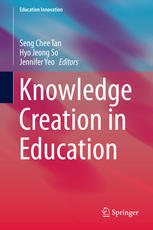

Most ebook files are in PDF format, so you can easily read them using various software such as Foxit Reader or directly on the Google Chrome browser.
Some ebook files are released by publishers in other formats such as .awz, .mobi, .epub, .fb2, etc. You may need to install specific software to read these formats on mobile/PC, such as Calibre.
Please read the tutorial at this link: https://ebookbell.com/faq
We offer FREE conversion to the popular formats you request; however, this may take some time. Therefore, right after payment, please email us, and we will try to provide the service as quickly as possible.
For some exceptional file formats or broken links (if any), please refrain from opening any disputes. Instead, email us first, and we will try to assist within a maximum of 6 hours.
EbookBell Team

4.0
26 reviewsThis book arises from research conducted through Singapore’s National Institute of Education on such topics as integrating knowledge building pedagogies into Singaporean classrooms, with both students and teachers across school levels, from primary schools to high schools. Additionally, international scholars contribute research on theories of knowledge creation, methodological foundations of research on knowledge creation, knowledge creation pedagogies in classrooms and knowledge creation work involving educators. The book is organized in two sections. Section A focuses on theoretical, technological and methodological issues, where sources of justification for claims are predominantly theories and extant literature, although empirical evidence is used extensively in one chapter. Section B reports knowledge creation practices in schools, with teachers, students or both; the key sources of justification for claims are predominantly empirical evidence and narratives of experience The editor asserts that schools should focus on developing students’ capacity and disposition in knowledge creation work; at the same time, leaders and teachers alike should continue to develop their professional knowledge as a community. In the knowledge building vernacular, the chapters are knowledge artifacts – artifacts that not only document the findings of the editors and authors, but that also mediate future advancement in this area of research work. The ultimate aim of the book is to inspire new ideas, and to illuminate the path for researchers of similar interest in knowledge creation in education.